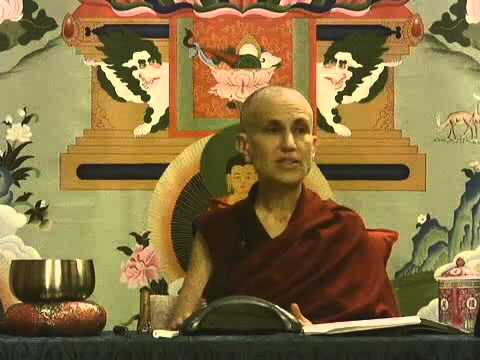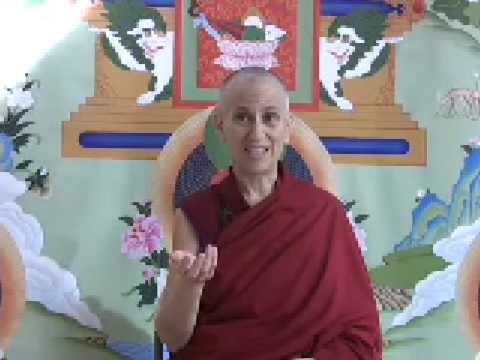Verse 36-3: How to praise people
Part of a series of talks on the 41 Prayers to Cultivate Bodhicitta from the Avatamsaka Sutra (the Flower Ornament Sutra).
- Giving meaningful praise and feedback
- Giving feedback in terms of specific behaviors
“May all beings praise the qualities of all Buddhas and bodhisattvas.”
This is the prayer of the bodhisattva when seeing someone praise another.
I thought today to talk a little bit about how to praise people. Sometimes, we think that praise is to say, “Oh you are so wonderful, you’re so fantastic. Everything you do is super-duper.” We think that that’s praise. Actually, that can be quite confusing for people because they know we feel positive towards them, but they don’t know why. In the same way when you’re trying to give somebody feedback, if you say, “Oh what you did is wrong, you’re so stupid,” they have no idea what you’re talking about. They know that you have bad feelings but they don’t know what they did.
I’m saying this because a lot of times when we were kids we heard praise and negative feedback in terms of, “Am I loved or am I not loved?” Actually, feedback—positive or negative—should be given in terms of the specific behaviors, not in terms of whether the person is loved or not loved.
For example, if we want to praise somebody we say, “You did xyz…,” and we state what it was they did “…and I really appreciate your doing this because…,” and then you state how their behavior influenced you in a positive way. Then they get it. “Oh yeah, when I speak this way people benefit. When I speak that way, they don’t.” Then they have something specific to hang their hat on. Whereas if I just say, “You’re good,” or, “You’re bad,” people don’t know what it is and it’s really quite confusing.
When you’re praising people, really try and look at the specific behaviors they did—what they said, what they did—and then comment on that in a very specific way. It’s really nice then, and it helps people know what to cultivate in the future that benefits. Here’s where expletives don’t work, because they’re too general—the swear words or the fantastic words, they’re both out of balance. Because if we talk to ourselves, “Oh that person’s beep beep beep…,” or, “that person is so wonderful, fantastic, just super-duper….,” it’s twisting our mind’s view. We really have to look at what the behavior is. If we do that then we will also learn what is helpful for us to do and what is helpful for us to not do when looking at how other people’s behavior affects them and the people around them.
Venerable Thubten Chodron
Venerable Chodron emphasizes the practical application of Buddha’s teachings in our daily lives and is especially skilled at explaining them in ways easily understood and practiced by Westerners. She is well known for her warm, humorous, and lucid teachings. She was ordained as a Buddhist nun in 1977 by Kyabje Ling Rinpoche in Dharamsala, India, and in 1986 she received bhikshuni (full) ordination in Taiwan. Read her full bio.


